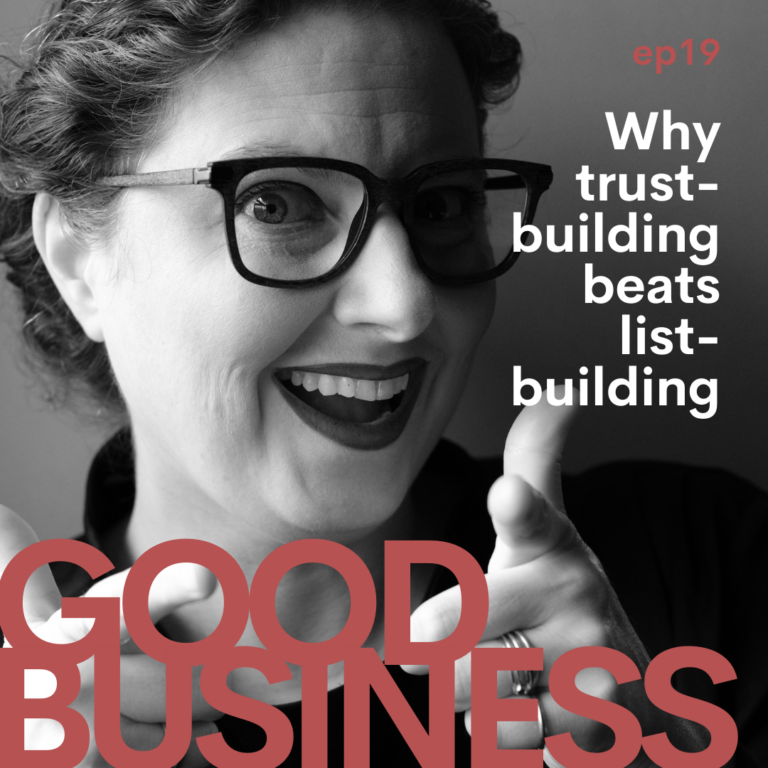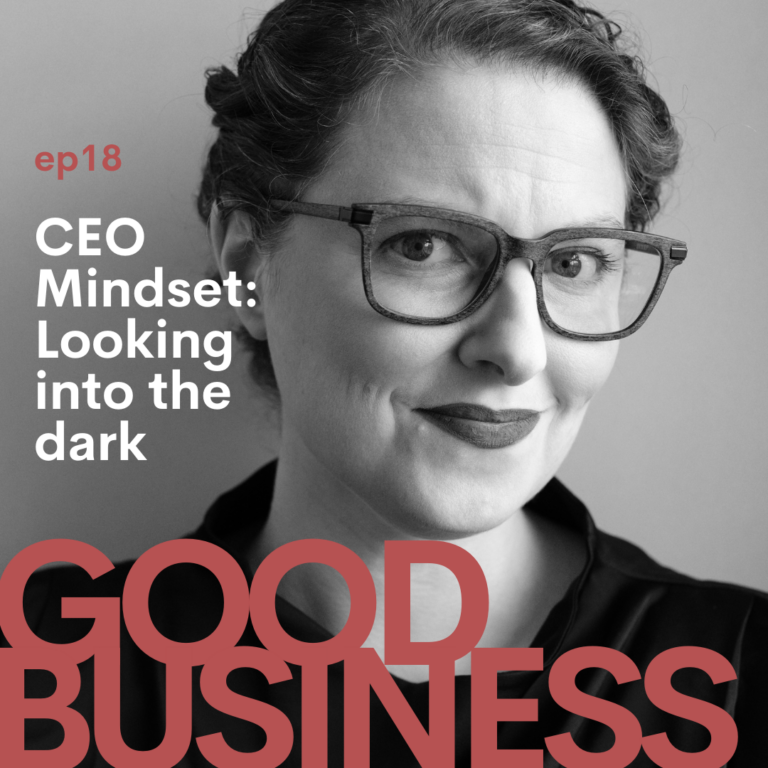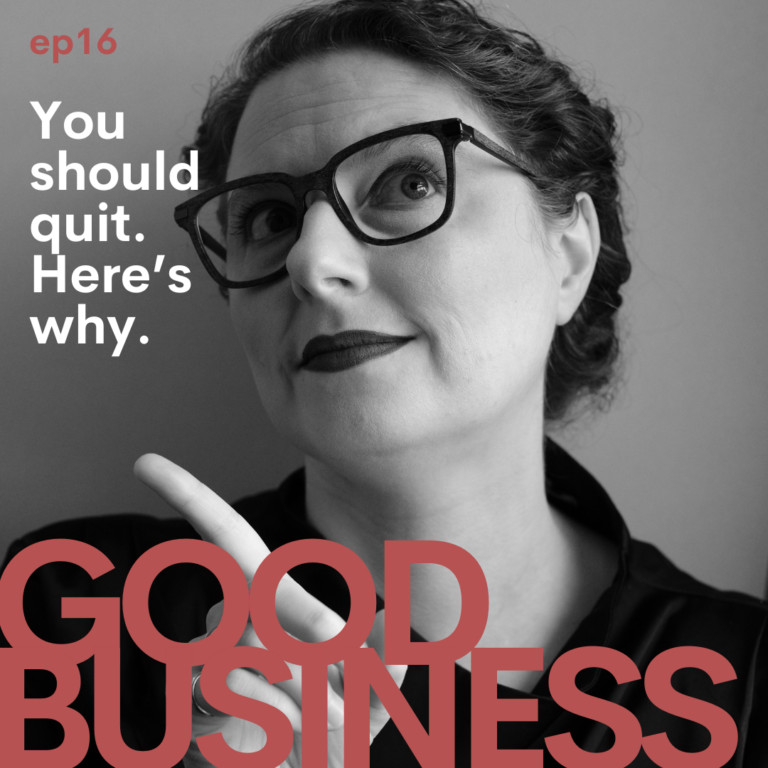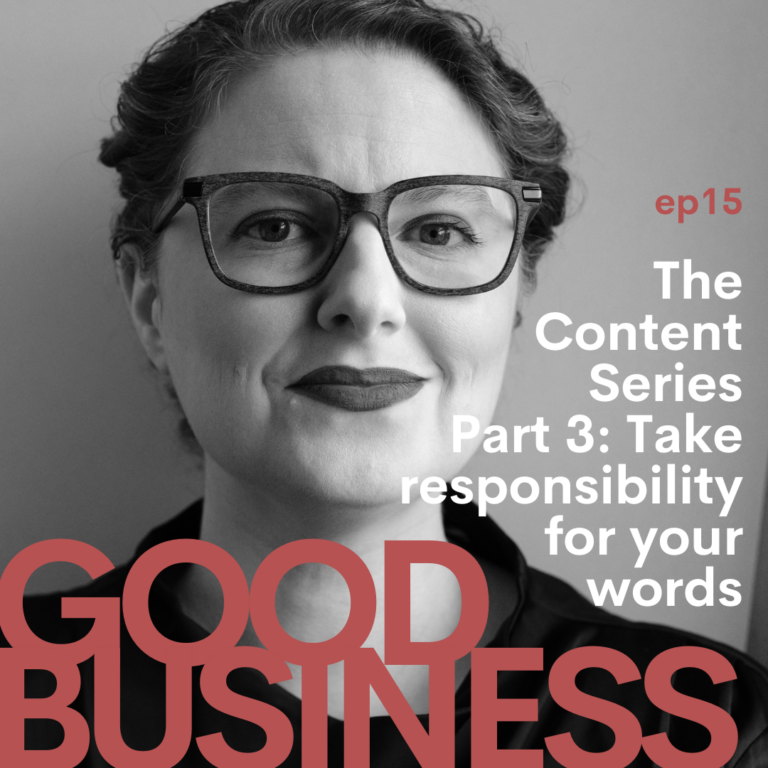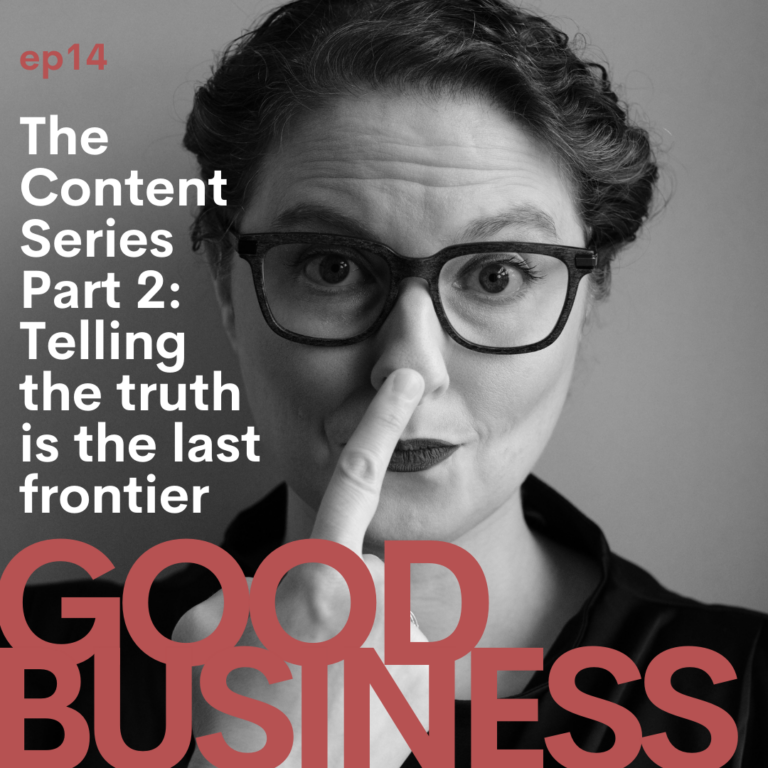Hello, fabulous listeners, and welcome back to another episode of Good Business. Today, we’re diving into a topic that might just flip the script on how you think about your offers: “Why Your Offerings Should Reflect What’s Best for You Before They Reflect What’s Best for Your Clients.” Sounds counterintuitive. I know. Well, stick around because I’m gonna break it down in a way that’s both practical and super powerful.
First, I’m going to talk about what all this has to do with niching and marketing, then I’ll explain exactly how to do this, and finally I’ll dig into how this improves your leadership positioning.
So let’s talk about niching.
We hear this buzzword all the time, right? “Find your niche!” But let’s be real, for many of us, this is both easier said than done and often downright impossible – at least the way most people teach it. I mean who wants to ONLY help one tiny group?
So why bother, right?
But actually, the thing that other marketers get right about niching is that it makes your work easier to market. After all, if you’re only talking to a narrow group of people, it’s way easier to say exactly what they need to hear.
And while I talk about niching based on your values quite a lot, the WAY you offer your work can also speak volumes to a far more specific – and easier to market to – audience. (Starting to connect now?) Essentially, your distinctive approach, your personality, your methodology, and your delivery can be just as effective as niching based on what your people ate for breakfast (probably more so).
So what are we REALLY talking about today? Essentially, we’re talking about creating and framing offers around how you perform at your best both so you can be happier and healthier in your business AND so you can market with more ease.
Rather than offering what everyone else in your industry is offering, craft offers that intrinsically work for you. For example, I do two hour calls once per month with most of my 1:1 clients. This allows me to both work with more people than if I had multiple sessions per month without having to work more than the three days a week that I enjoy.
It also means I get to deep dive with every single client rather than getting stuck in talking about more surface day-to-day issues. The structure itself helps my clients desire and expect the big-thinking, expansive strategy stuff I enjoy the most.
When you create offerings that reflect what’s best for you—your strengths, your weaknesses, and when and how you work best—you naturally carve out a niche without the stress of trying to fit into a pre-defined market segment.
Basically, you’ll attract a very specific group of people who like the WAY you work as much as they like what you’re offering. It also works because it ties into the ever-popular idea that authenticity rules. People crave it, and when you serve it, you attract those who resonate with how you do what you do.
Now, let’s get into why this not only positions you as a better leader and sets a sterling example for your clients. When you put yourself first—not in a negatively selfish way, but in a way that ensures your well-being and passion are at the forefront—you operate from a place of strength and clarity. This isn’t about ignoring your clients’ needs; it’s about ensuring you’re at your best to meet those needs.
When you’re thriving, your clients see a leader who is confident, self-aware, and energetic. This sets a powerful example. You’re teaching them to value themselves, to find their unique path, and to lead with integrity. By prioritizing what’s best for you, you’re showing them that the best way to serve others is by first ensuring you’re in the best position to do so.
And this brings us my holy grail of good business: promise-keeping. The most important thing in any business relationship is trust. When you design your offerings around what’s best for you, you’re more likely to keep the macro, outcome-based promises you make to the people you serve. Why? Because you’re not stretching yourself too thin or overcommitting in areas that drain you.
Promise-keeping isn’t just about doing what you say you’ll do; it’s about consistently delivering the quality and value you said you would. When the structure of your offerings aligns with your needs and preferences, you’re naturally more reliable. Your clients will know they can count on you, not just because you deliver, but because you deliver with excellence and enthusiasm in a well-designed container. And when clients feel like they can confidently trust the structure and boundaries you’ve set up – then you’ve set the stage for a high-trust, high-performing relationship.
Ok, that’s it for me today everyone! As always, thank you for tuning in to Good Business. I hope this episode has given you a fresh perspective on how to shape your offerings and lead with integrity. If you enjoyed this episode, don’t forget to subscribe, share, and leave a review. Until next time, always remember that it is just business. And that’s always personal.
More Episodes
Why trust-building beats list-building every day of the week | GB19
Today’s episode is all about why focusing on listbuilding as your primary focus in client acquisition is the very best way to feel like you’re banging your head against a wall. It’s also the very best way to make the people you MOST want to connect with feel like the only think that matters to you about THEM is their email address.
CEO Mindset: Looking into the dark | GB18
Today’s episode is on one area of what people call the ‘CEO Mindset’. First, we’ll dig in a little to what people THINK this means. Then, we’ll talk through what it ACTUALLY means. And finally, we’ll wrap up with some simple truths about how to do this better and why doing so is necessary to actually grow.
What to do when you just can’t get fired up about a great idea | GB17
Today’s episode is all about what to do when you’re working on something that you love but you can’t figure out why it just. isn’t. working. First, we’ll talk about what it feels like to love something but not be lit UP by it. Then we’ll talk about what to do about it and how to fix it. And finally, we’ll wrap up with some inspiring examples of how this works in action.
Are you a quitter? Because the world needs more quitters. | GB16
Quitting usually comes with shame. It feels like bad decisions and ignorance and can certainly be predicated on failure, but it is, and will always be a choice that is 100% within your control. You can’t be forced to quit. You...
The Content Series: Take responsibility for your words | GB15
Gone are the days of taking out an ad in the local newspaper to get foot traffic. When you start a business this day in age, you have to not only have something to SELL, you have to have something to SAY.
The Content Series: Why telling the truth is the only content strategy left | GB14
Today’s episode is all about the last frontier of content marketing: The bold notion that you can tell the whole truth and people will buy whatever you’re selling.

